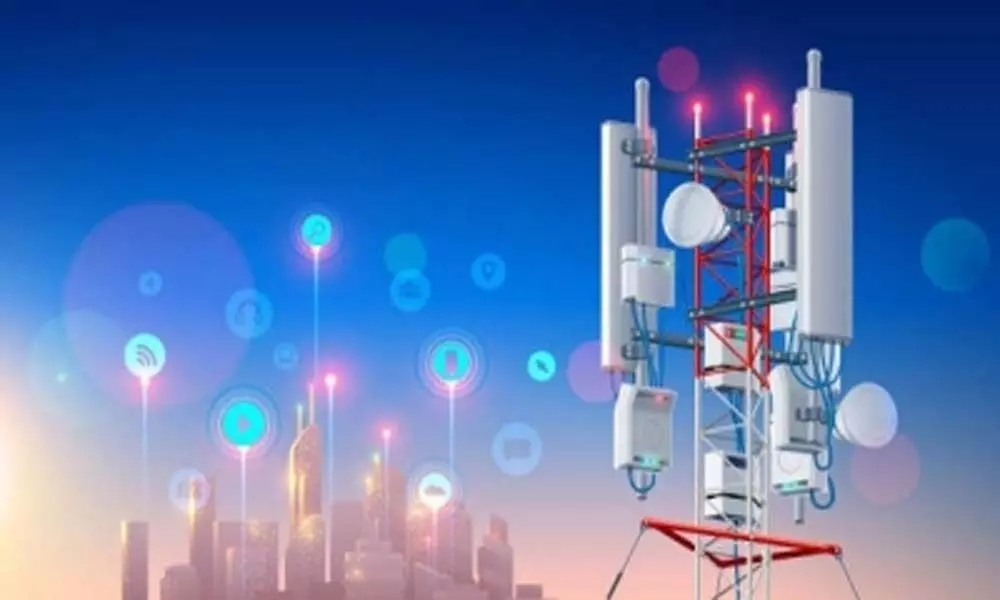Live
- Fishermen in distress due to lax sanitary facilities in Malpe Fisheries Harbour
- BJP, JD(S) leaders helped win Channapatna bypoll
- INS Kuthar makes maiden visit to Gopalpur Port
- PM praises city-based NGO for promoting libraries
- Odisha police rescue ‘trafficked’ Bangla girl
- iPhone 16 Plus Now at Rs. 2,000 Discount on Amazon – Get It Today
- How Technology is Shaping Global Connectivity and Enhancing Security
- Dy CM directs officials to collect all critical info on caste census
- Naga Chaitanya Opens Up About His Wedding Plans with Sobhita Dhulipala
- ‘NC24’ First Look Poster: Naga Chaitanya’s Next Promises Thrills and Mythology
Just In
DoT further liberalises norms for Other Service Providers


DoT further liberalises norms for Other Service Providers
In a boost to the BPO sector in the country, the Department of Telecommunications (DoT) on Wednesday further liberalised the guidelines for Other Service Providers (OSPs).
New Delhi : In a boost to the BPO sector in the country, the Department of Telecommunications (DoT) on Wednesday further liberalised the guidelines for Other Service Providers (OSPs).
These entities are Business Process Outsourcing (BPO) organisations providing voice-based services in India and abroad.
The guidelines further liberalised the special dispensation given to the OSPs in addition to the major measures which have been already announced and implemented in November 2020.
The liberalised guidelines announced on Wednesday would remove the distinction between domestic and international OSPs.
A BPO centre with common telecom resources will now be able to serve customers located worldwide, including in India.
The EPABX (Electronic Private Automatic Branch Exchange) of an OSP can be located anywhere in the world.
The OSPs, apart from utilising the EPABX services of the telecom service providers, can also locate their EPABX at third party data centres in India, said an official statement.
With the removal of the distinction between domestic and international OSP centres, interconnectivity between all types of OSP centres has now been permitted.
The remote agents of OSPs can now connect directly with the centralised EPABX/EPABX of the OSP/EPABX of the customer using any technology, including broadband over wireline/wireless.
There would also be no restriction on data interconnectivity between any OSP centres of the same company or group company or any unrelated company.
Taking to Twitter, Prime Minister Narendra Modi said: "In order to encourage our BPO industry, OSP guidelines that were liberalised in November 2020 have been simplified even further, offering greater ease of business and regulatory clarity."
This would further reduce the compliance burden and help the tech industry, he added.
Union Minister for Communications, Ravi Shankar Prasad, said that India's BPO industry is one of the largest in the world. Currently India's IT-BPM industry stands at $37.6 billion (2019-20), providing job opportunities to lakhs of youth in the country.
It further has the potential for double digit growth, reaching up to $55.5 billion by 2025, he said.
In November 2020, OSP guidelines were liberalised and data-related OSPs were totally taken out of the ambit of any regulation, thereby requiring no bank guarantees, no requirement of static IP or reporting to the DoT.
Further, there is also no requirement of publication of network diagram, and no penalties.
The eased norms also made 'work from anywhere' a reality.

© 2024 Hyderabad Media House Limited/The Hans India. All rights reserved. Powered by hocalwire.com






